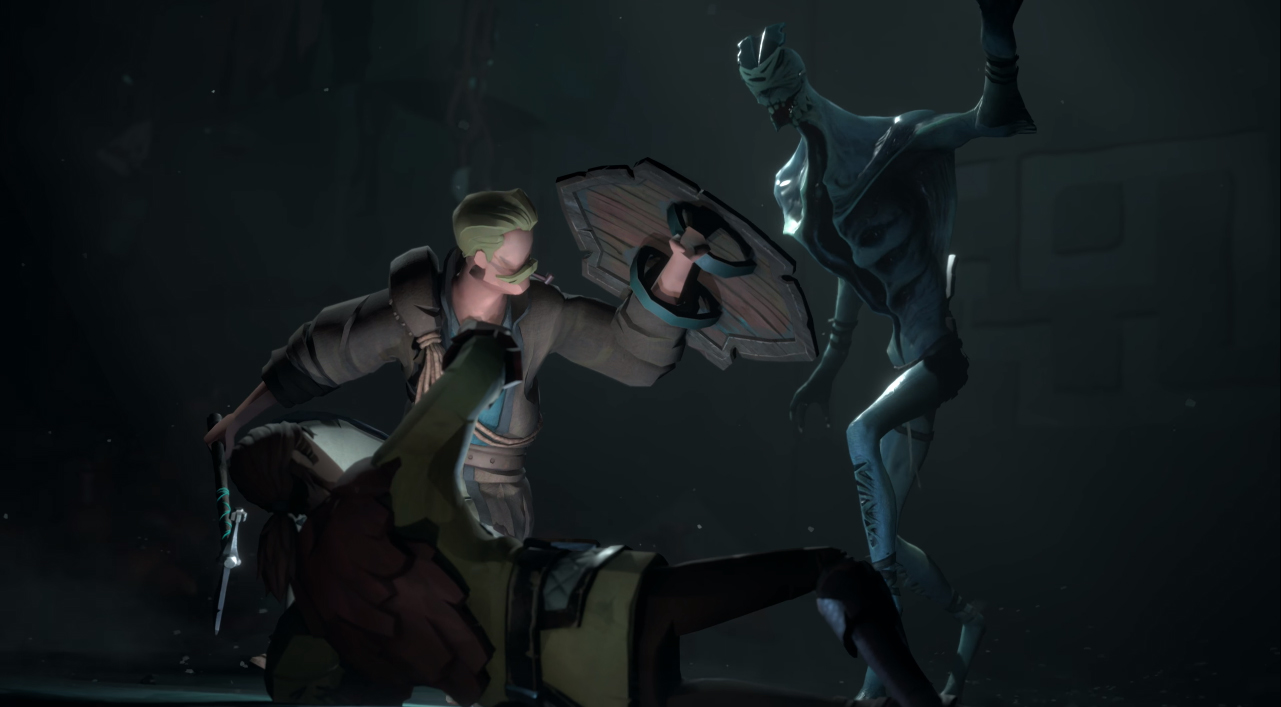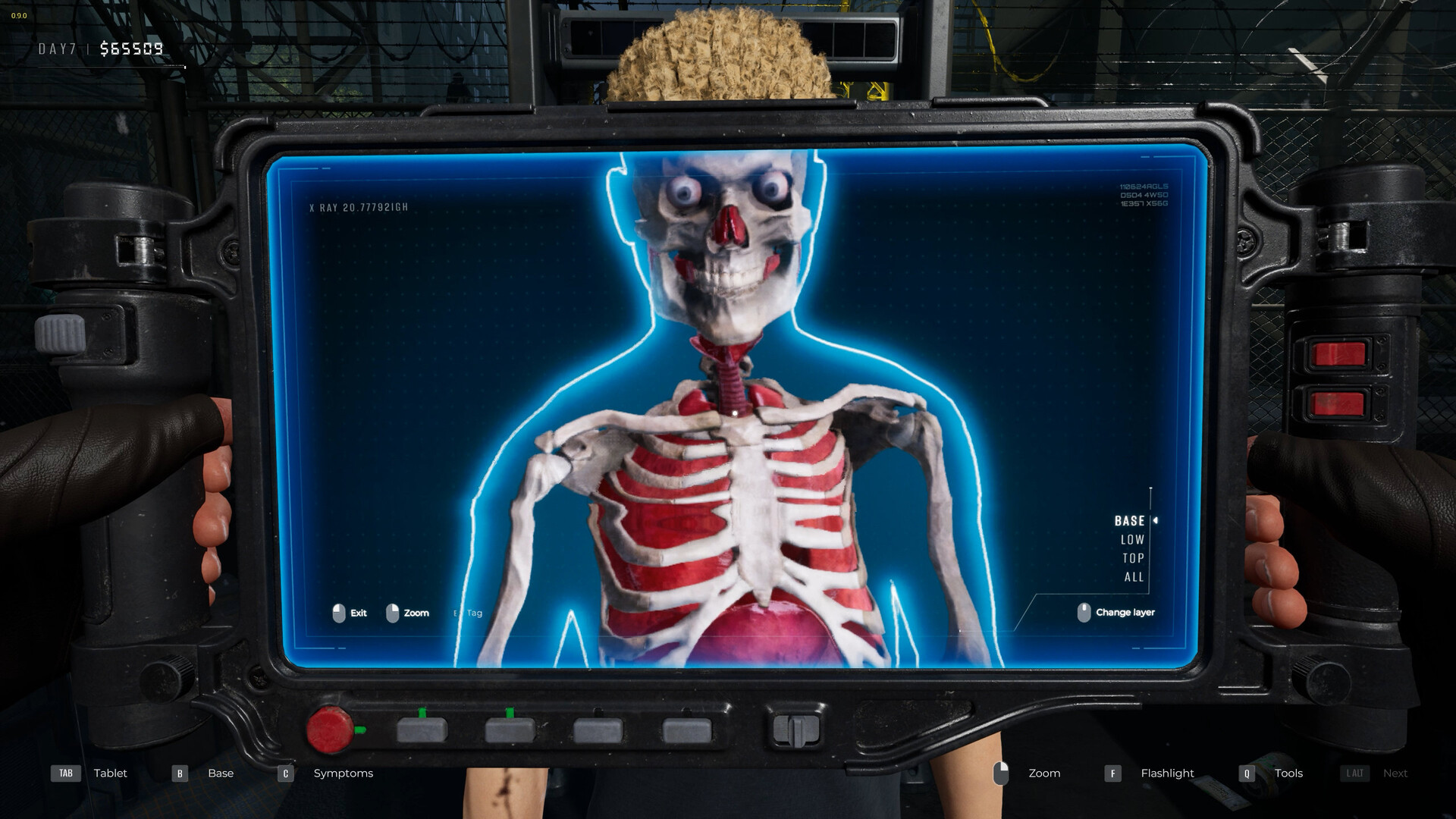Our Verdict
Ashen's slant on the Soulslike subgenre isn't revolutionary, but is a wonderful example of the familiar formula executed well. It's thoughtful, gorgeous, challenging and a dream to explore.
PC Gamer's got your back
What is it? A low-fantasy Soulslike action RPG.
Expect to pay $40/£36
Developer A44
Publisher Annapurna Interactive
Reviewed on GTX 980, Intel i5-6600K, 8GB RAM
Multiplayer? Yes
Link Official site
Some people will argue the 'Soulslike' label needs to die. They'll tell you it's overused, hackneyed and that there are other catch-all terms to describe hybrid ARPGs, which don't rely on comparison, even when it's the best fit. I think these people are wrong. Ashen, a low-fantasy action role-player developed by A44 and published by Annapurna Interactive, closely echoes many of the ideas and systems found in From Software's Dark Souls series. It knows exactly who its audience is, and, for all intents and purposes, is a Soulslike game. And it's a bloody good one.
In place of Estus Flasks, for example, Ashen gives players sap-filled Crimson Gourds that deliver health boosts in limited supply. In the absence of Souls, Ashen trades in Scoria—a currency farmed from fallen enemies that helps facilitate progression. As is law in Miyazaki's nightmare-scapes, accumulated Scoria is lost upon death, and can only be regained in your immediate next life. Likewise, resting at Ritual Stones replenishes vitality, à la Dark Souls bonfires, at the expense of reinstating fallen foes within the world. Ashen's enemies are tough, its bosses are blockbuster, and its gorgeous handcrafted world is littered with ambiguous lore and odd but charming NPCs.
So similar to the Soulsborne series is Ashen, in fact, that these comparisons will inevitably attract or avert players from the outset. This reflects the polarising nature of this style of game, but, by setting out its stall with precision and conviction, Ashen never does so shamelessly. Moreover, Ashen leaves little room for learning curves during its relatively modest 20-ish hours runtime. But I reckon it's all the better for it.
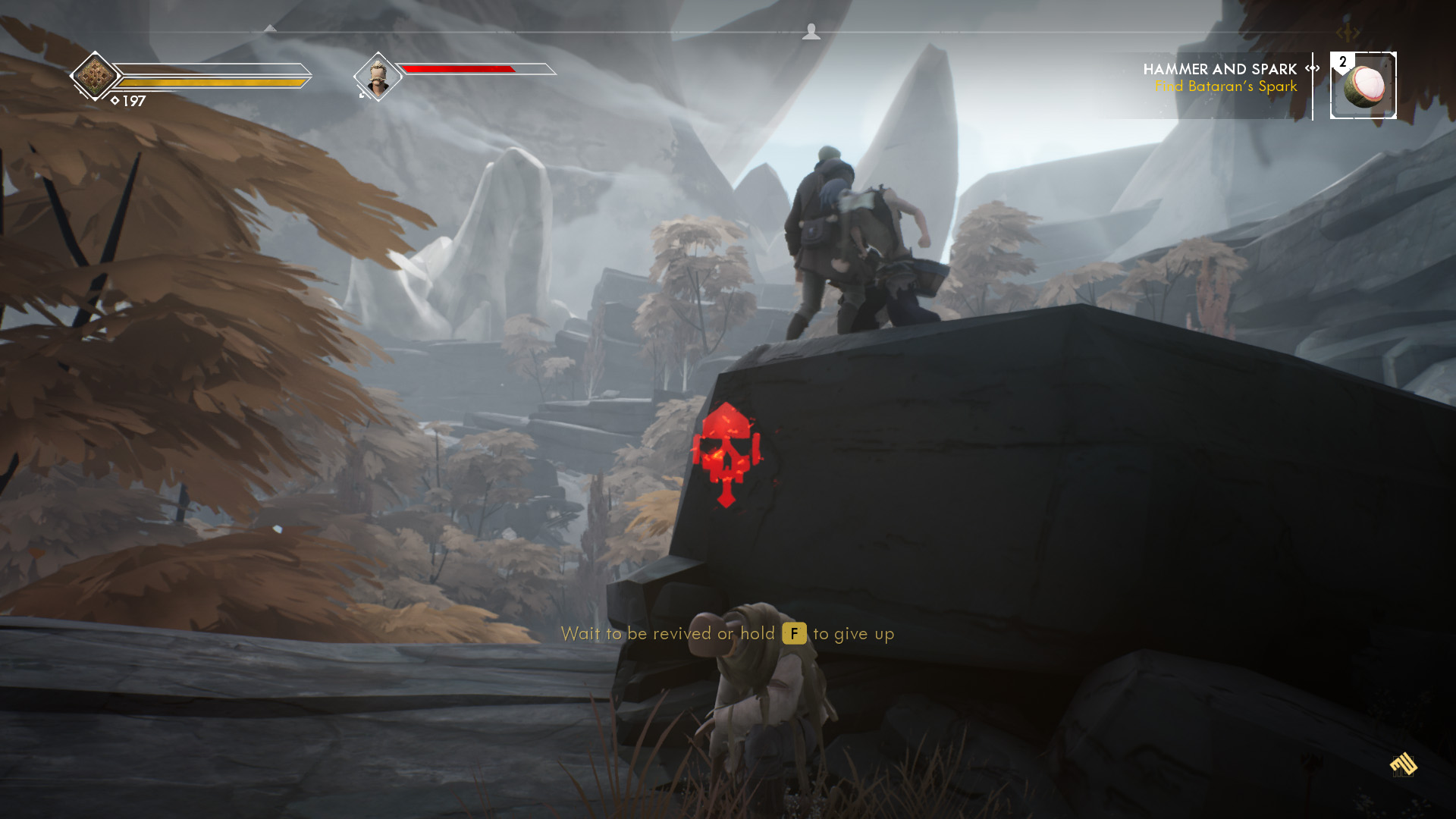
In the wake of the game's titular 'Ashen' rebirth, Ashen paints a familiar tale of Light versus Dark, which ultimately boils down to: All the goodies in the world want the light to survive, and all the baddies want it extinguished. The overworld is often described as the 'twilight plains', while its cavernous, beastie-infested dungeons are, by nature, drab and packed with terrors.
This juxtaposition of themes is best defined by Ashen's world itself, which regularly switches from sprawling open world to claustrophobic grotto during the game's scores of tabulated quests. Early doors, I found myself fumbling around a wooded area named the Restless Knoll, which was cluttering with spear-wielding enemies. Paired with an AI-controlled NPC named Jokell, I let him engage two foes at the foot of a hill, before I swung back around and got the drop from above.
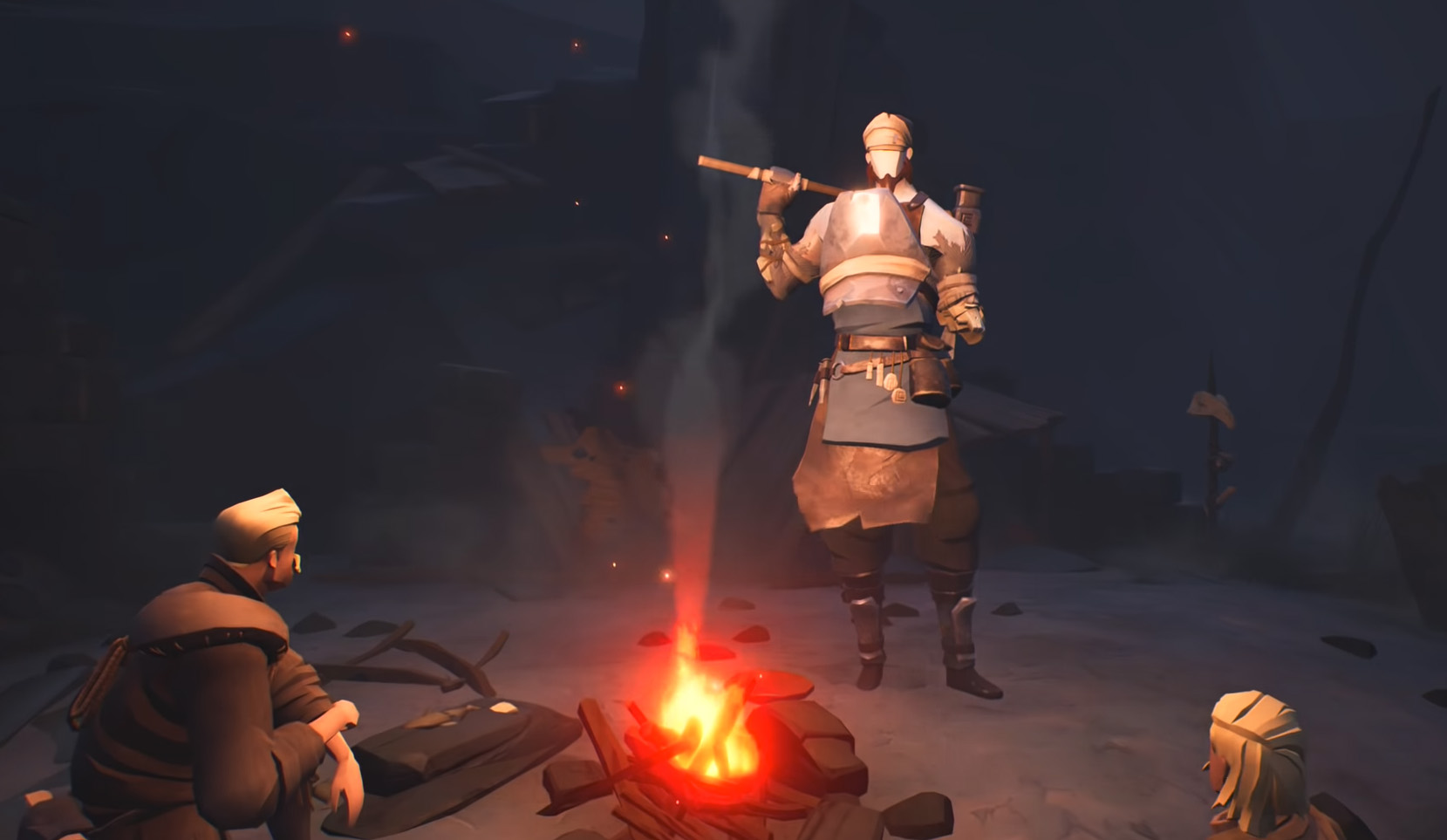
We cleaned house on this occasion, but, after dying down the line and re-trying this same battle plan against this same cluster of enemies, I took a different route to the summit of the peak and was ambushed by a group of angry shield-bearing bearded men. Fortunately, Jokell dispatched his aggressors in time to batter the beardies and revive my sorry ass, but the whole ordeal was a lesson in how unforgiving Ashen's world can be—and how quickly you can find yourself in hot water. It can at times feel a wee bit on-rails, but the epochal, chop-and-change character of its quests help ease the world's occasional linearity.
Minutes after that debacle, Jokell became my torch-bearing wingman as we plumbed the depths of a Tomb of the Giants-style dungeon, brimming with traps, interminable winding corridors and, obviously, shadow monsters. It's in these moments that Ashen's stamina-based combat comes into its own.
Keep up to date with the most important stories and the best deals, as picked by the PC Gamer team.
In any fight, understanding the lay of the land is crucial, and whereas conflicts out in the field can be judged in advance, battles indoors often unfold in tight, dimly-lit areas. Different weapons have different stamina demands, and shrewd use of light and heavy attacks is essential for survival. Do you steam in with an RMB double-handed axe smash and hope for the best, or do you offload a flurry of LMB light-attacks and quickly Shift dodge your way to success? Judge well or die hard, my friend.
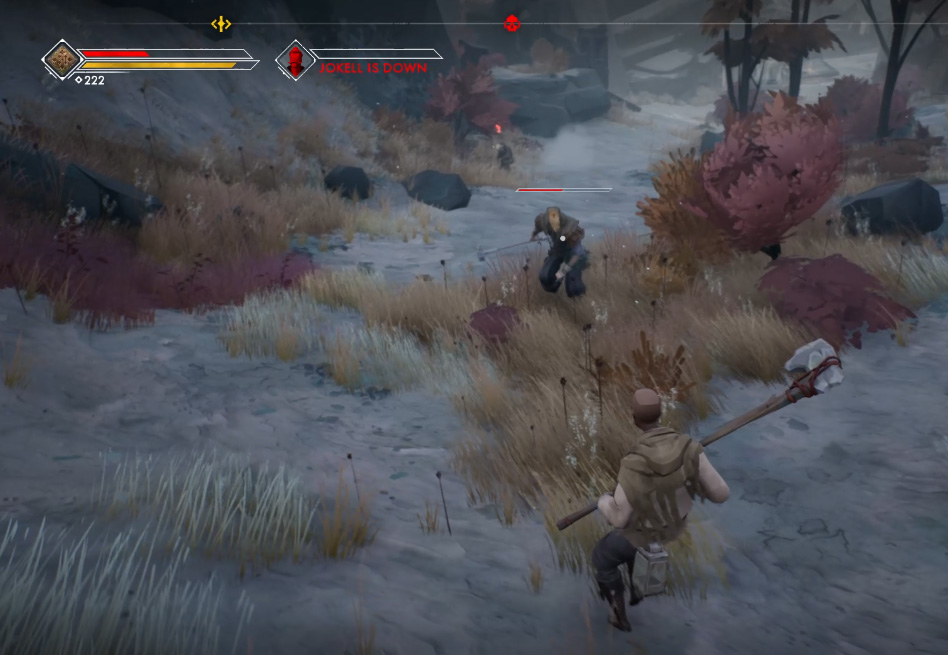
And speaking of friends, Ashen's passive co-op system is wonderful. AI companions offer sidequests and will often tag along for the journey, while real-world players let you band together for specific missions and part ways whenever you so choose. You can always go your own way if you like, but I'd always recommend against it because a) I'm a shitebag and b) every time I went it alone, I wound up crying for a buddy's help anyway after a new wave of misadventure.
Once you've tied down an NPC, you can invite them back to your centralised HQ in Vagrant's Rest, where they'll duly offer new key items, crafting options, lore snippets and other world-related quirks I won't spoil here. Despite the obvious Firelink Shrine/Majula nod, I got some serious Suikoden castle vibes from the search and recruit nature of Ashen's settlement—which is no bad thing.
To say Ashen borrows liberally from From Software's Soulsborne series is an understatement, but it in many ways necessitates the 'Soulslike' label. Yes, Ashen echoes the core mechanics of Dark Souls, but it does so which such finesse that it hardly matters. Its passive co-op features offer new insights into the genre, and the variety of its beautiful world is an absolute joy.
Ashen's slant on the Soulslike subgenre isn't revolutionary, but is a wonderful example of the familiar formula executed well. It's thoughtful, gorgeous, challenging and a dream to explore.
